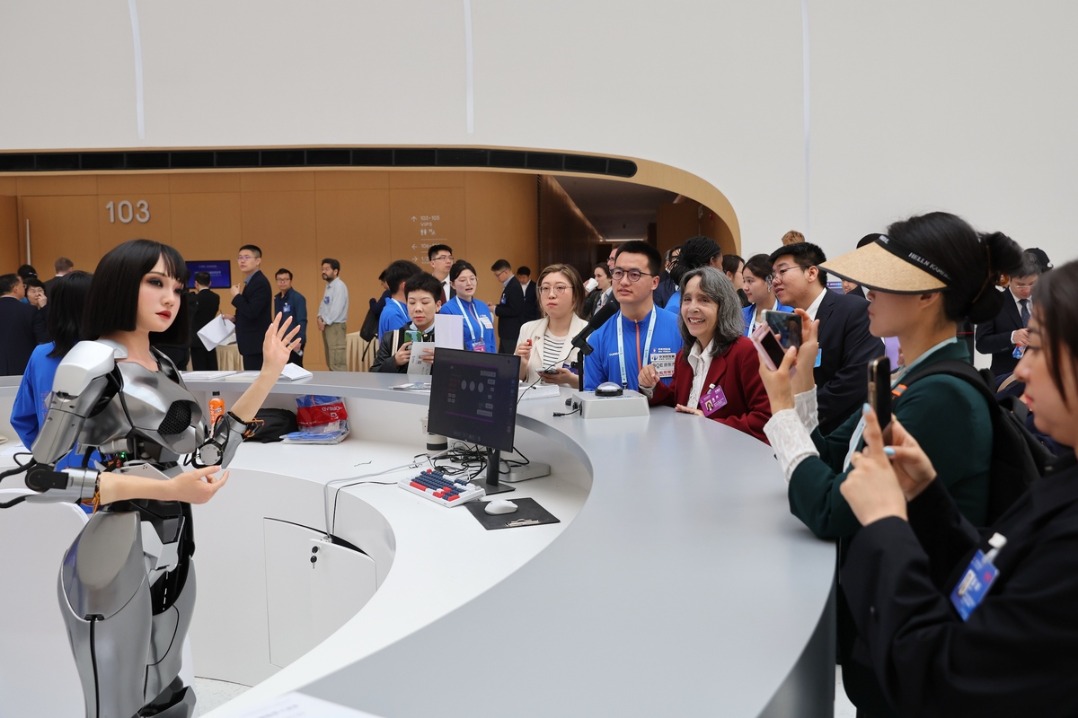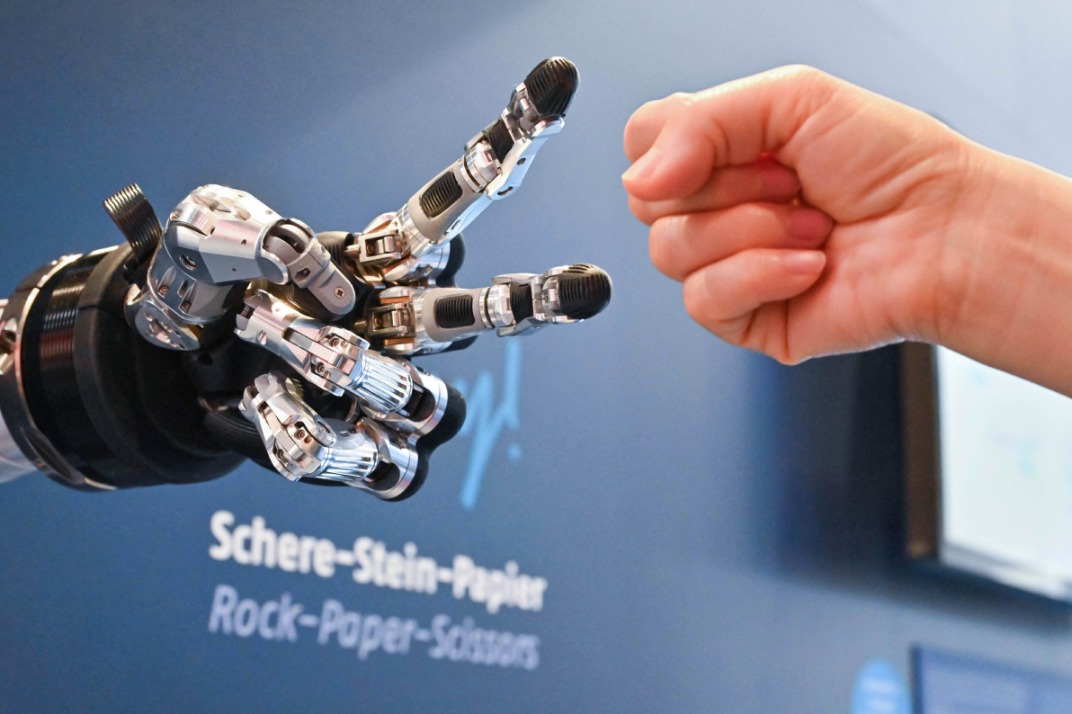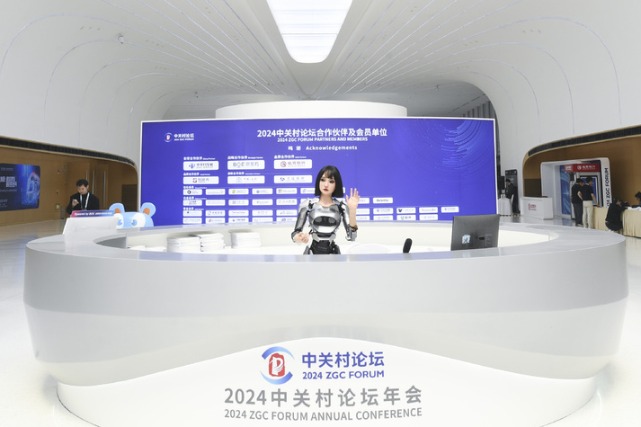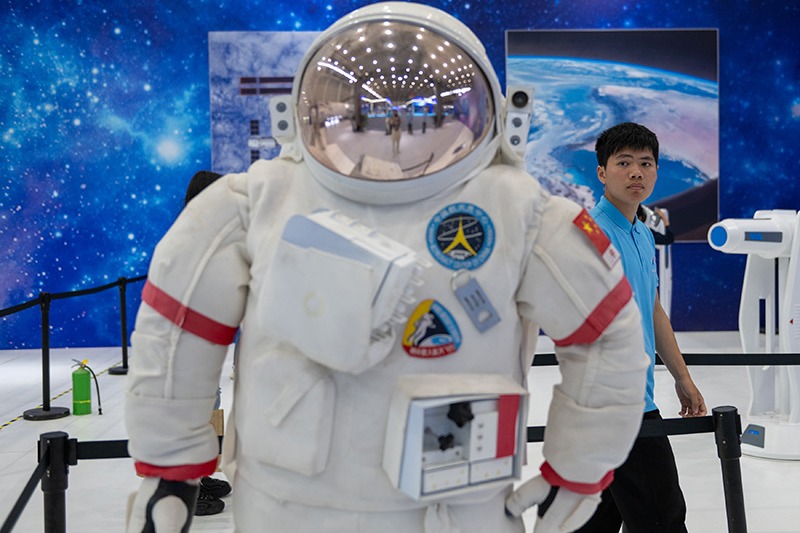Appliance makers eye smart tech


Manufacturers speed up use of AI, big data, cloud computing, to upgrade products
Chinese home appliance manufacturers are shifting to smart strategies at an accelerated pace, applying artificial intelligence, cloud computing and big data to boost the transformation and upgrading of products.
Consumer electronics giant TCL Corp will continue to offer intelligent and customized air conditioners this year to meet consumption upgrading, with annual sales expected to reach 15 million units within three years, said Li Shubin, vice-president of the company.
The voice recognition accuracy of its intelligent air conditioners, which are equipped with an interactive system, could reach 95 percent, according to Li. The air conditioners can automatically control the humidity and temperature inside a room, based on its self-learning capacity to track users' air conditioning habits.
Li said the annual sales of its air conditioners surpassed 10 million units at the end of last year, adding this figure is set to reach 12 million units this year.
In the past three years, TCL has spent more than 500 million yuan ($75 million) on research and development of air conditioners, and invested 220 million yuan in this area in 2016 alone. Currently, its air conditioning units hold 1,842 independent intellectual property rights, including 297 patents.
With the advent of the fifth-generation communication tech era, air conditioners will be incorporated into intelligent homes, rather than existing ones. The intelligent air conditioners should possess "self-learning, self-adaption, self-diagnosis and self-correction" functions, according to TCL.
Moreover, some air conditioner manufacturers use infrared sensors to adjust the wind speed based on the distance between people and the appliances. Industry statistics showed the market share of intelligent air conditioners in the domestic market has reached 43.2 percent.
According to China Market Monitor Co Ltd, the sales revenue of air conditioners in the domestic market rose to 198.7 billion yuan in 2017, an increase of 32.4 percent year-on-year, with sales volume reaching 57.87 million units, up 27.4 percent compared with the previous year.
However, industry insiders expressed concern about China's air conditioner market this year due to tightened regulations in the real estate market and a lack of incentives from authorities.
Beijing-based consultancy All View Cloud, or AVC, estimates sales of air conditioners will reach 53.13 million units in 2018, down 6.4 percent year-on-year.
Haier Group, another Chinese home appliances manufacturer, has developed intelligent smart products from refrigerators to air conditioners by utilizing its own U+ smart home platform.
Using the platform, consumers have access to real-time information about their home appliances on their mobile devices via a dedicated app, allowing them to monitor and control appliances remotely.
"Our understanding of AI is to promote the deep integration of AI technologies and smart homes," said Zhao Feng, chief technology officer of Haier. "Meanwhile, we will provide resources to build an innovative and open platform for the whole smart home industry."
According to Haier, its intelligent air conditioners can compare indoor and outdoor temperatures and humidity changes in real time, then automatically adjust cooling, heating and humidity, with purification functions. The appliances can also precisely forecast future weather conditions and environmental information for limited areas where the user is located.
A report from Euromonitor, a London-based global market research company, said the market for connected air conditioners, including smart air conditioners, will continue expanding, with the Chinese market possessing great development potential in the future.
"Apart from adjusting the indoor temperature and humidity, the upgraded air conditioners should tackle indoor air pollution," said Lu Jianguo, deputy chief engineer of the Chinese Home Appliances Research Institute.




































